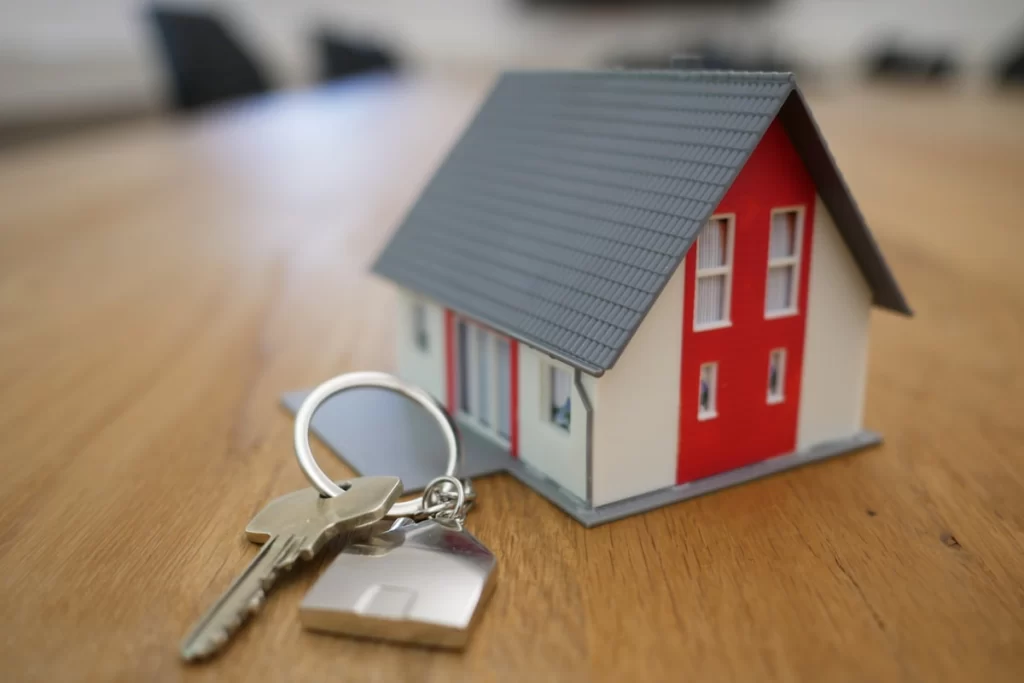Reverse Mortgages: Options and Alternatives to Equitable Bank
Considering a reverse mortgage can be a significant financial decision, especially when exploring options like Equitable Bank’s reverse mortgage. This article aims to provide a comprehensive overview of reverse mortgages, focusing on how they work, the types available, and alternatives to Equitable Bank. We will explore how a reverse mortgage works, enabling homeowners to convert a portion of their home equity into tax-free income while continuing to live in the home. This can be particularly appealing for those age 55 and over, seeking to supplement their retirement income or cover unexpected expenses.
Understanding Reverse Mortgages
What is a Reverse Mortgage?
A reverse mortgage, unlike a traditional mortgage, allows homeowners to borrow against the value of their home without making monthly mortgage payments. Instead of paying down the loan, the interest accrues and is added to the loan balance over time. This unique type of mortgage is specifically designed for older homeowners, typically age 55 or older, who have built up significant equity in their homes. The homeowner can access a portion of their home equity into tax-free cash, which can be used for various purposes, such as covering healthcare costs, home renovations, or supplementing retirement income. Understanding this fundamental difference is crucial before applying for a reverse mortgage.
How a Reverse Mortgage Works
The way a reverse mortgage works is that it allows homeowners to borrow against their home equity without the obligation of making monthly payments. The amount one can borrow depends on factors like age, home value, and prevailing reverse mortgage rates. The accumulated interest and fees increase the loan balance over time, reducing the homeowner's equity. Typically, the loan becomes due when the homeowner sells the home, moves out, or passes away. At that point, the home equity is used to repay the reverse mortgage. It is essential to understand that even with a reverse mortgage, the homeowner remains responsible for property taxes and insurance to avoid foreclosure.
Types of Reverse Mortgages
There are primarily two main types of reverse mortgages available in Canada. One option includes proprietary reverse mortgages offered by private lenders like Equitable Bank and HomeEquity Bank. These lenders have their own eligibility criteria, interest rate structures, and features. Equitable Bank’s reverse mortgage and HomeEquity Bank are Canada’s leading providers, offering flexible terms. The second type is the Home Equity Conversion Mortgage (HECM), which is more common in the United States and insured by the Consumer Financial Protection Bureau. Understanding the differences between these types of reverse mortgages is crucial when deciding which option best suits your financial needs and goals.
Equity and Your Home
Assessing the Value of Your Home
Before considering a reverse mortgage, especially Equitable Bank’s reverse mortgage, it is crucial to accurately assess the value of your home. This assessment directly impacts how much money from a reverse mortgage you can access. Factors influencing home value include location, size, condition, and recent comparable sales in your area. A professional appraisal provides the most accurate assessment, ensuring that you are getting a reverse mortgage based on realistic figures. Understanding the value of your home also allows you to make informed decisions about the potential impact of a reverse mortgage loan on your overall financial situation. It helps you to see how the accumulating interest rate may affect your home equity over time.
How Equity Affects Your Reverse Mortgage
Your home equity is the cornerstone of a reverse mortgage. The amount of equity you have directly influences the size of the reverse mortgage loan you can obtain. The greater your equity, the more cash you can access. As you take out a reverse mortgage, the loan balance increases over time due to accrued interest rate, effectively reducing your home equity. Understanding this dynamic is vital. When you eventually sell the home, the proceeds will first be used to repay the reverse mortgage, including the principal, interest, and any fees. The remaining equity, if any, belongs to you or your estate. It's important to remember that a reverse mortgage may reduce the inheritance for your heirs.
Benefits of Tapping into Your Home Equity
Tapping into your home equity through a reverse mortgage can offer several benefits. One of the most significant is the ability to access funds without having to sell the home. This allows homeowners age 55 and over to live in the home and supplement their income. The money from a reverse mortgage can be used for various purposes, such as covering healthcare expenses, funding home improvements, or paying off existing debt. Unlike a traditional mortgage, you don't have to make monthly mortgage payments, freeing up cash flow. However, you must continue to pay property taxes and maintain taxes and insurance to avoid foreclosure. Exploring the different types of reverse mortgage options can help you find the best fit for your financial needs and goals. Use a reverse mortgage calculator to see if it is the right fit.
Costs and Considerations
Costs Associated with a Reverse Mortgage
When considering a reverse mortgage, especially from Equitable Bank, it's crucial to understand all the associated costs. These costs can significantly impact the amount of home equity into tax-free cash you ultimately receive and how much home equity you will have later. Initial costs often include an appraisal fee to determine the value of your home, application fees, and origination fees, which can be a percentage of the reverse mortgage loan amount. Additionally, there are ongoing costs such as servicing fees, which cover the administration of the loan, and the responsibility of paying property taxes and taxes and insurance on your home. Understanding these costs is essential for making an informed decision about whether getting a reverse mortgage aligns with your financial goals. Consider using a reverse mortgage calculator to estimate the long-term impact of these costs.
Understanding Interest Rates
The interest rate is a critical factor in any reverse mortgage, as it affects how quickly the loan balance grows and impacts your home equity over time. Reverse mortgage rates can be fixed or variable, with variable rates often tied to a benchmark rate plus a margin. The type of interest rate you choose can influence the overall cost of the reverse mortgage loan. With a fixed interest rate, the rate remains the same throughout the life of the loan, providing predictability. In contrast, variable interest rates can fluctuate, potentially leading to higher or lower costs depending on market conditions. Understanding how interest accrues and compounds is essential for assessing the long-term implications of a reverse mortgage. Compare interest rates across different lenders and types of reverse mortgage to ensure you secure the best possible terms.
Pros and Cons of a Reverse Mortgage
A reverse mortgage offers several potential advantages for homeowners age 55 and over, primarily the ability to access your home equity into tax-free cash without selling the home. This money from a reverse mortgage can be used to supplement retirement income, cover healthcare expenses, or fund home improvements, enhancing your quality of life while still allowing you to live in the home. Unlike a traditional mortgage, there are no monthly mortgage payments required, which can free up cash flow. However, there are also potential downsides to consider. The interest rate accrues over time, increasing the loan balance and reducing your home equity. This means that you will have to pay back a larger amount when you eventually sell the home or the loan becomes due. It is important to note that a reverse mortgage may affect your estate and the inheritance your heirs receive, as you must repay the reverse mortgage. Additionally, you remain responsible for property taxes and taxes and insurance, and failure to pay property taxes may lead to foreclosure. Carefully weigh these pros and cons before deciding if a reverse mortgage is right for you.
Repayment and Alternatives
How to Repay a Reverse Mortgage
When it comes to a reverse mortgage, understanding how to repay the reverse mortgage is crucial for both the homeowner and their heirs. Typically, the reverse mortgage loan becomes due when the homeowner sells the home, moves out permanently, or passes away. At this point, the value of your home is used to repay the outstanding balance, including the initial principal, accrued interest rate, and any applicable fees. If the home value exceeds the total amount owed, the remaining equity belongs to the homeowner or their estate. However, if the value of your home is less than the outstanding balance, the estate will not be responsible for the deficiency, thanks to the non-recourse feature of most reverse mortgages in canada. This feature protects the homeowner and their heirs from owing more than the value of your home when repaying the reverse mortgage. It is important to remember that you can repay your reverse mortgage at any time without penalty.
Alternatives to Equitable Bank’s Reverse Mortgage
If you're exploring options beyond Equitable Bank’s reverse mortgage, several alternatives can help you access funds or manage your finances in retirement. One common option is a traditional home equity line of credit (HELOC), which allows you to borrow against your home equity with a monthly mortgage payments. However, HELOCs require credit approval and regular repayments, unlike a reverse mortgage. Another option is downsizing, where you sell the home and move to a smaller, less expensive property, freeing up cash. Additionally, you could consider a traditional mortgage refinance to lower your interest rate or access equity, but this involves credit checks and monthly mortgage payments. For some, government programs or grants may be available to assist with specific needs like home repairs or healthcare costs. Before you take out a reverse mortgage, carefully evaluate these alternatives to determine the best fit for your circumstances.
Choosing the Right Option for You
Choosing the right financial option requires careful consideration of your individual needs, circumstances, and long-term goals. If you are age 55 and over and need to supplement your retirement income without making monthly mortgage payments, then a reverse mortgage may be a suitable choice. Consider your tolerance for risk, particularly regarding fluctuating interest rates, and factor in the impact on your estate. If you are comfortable with making regular repayments and have good credit, a traditional home equity loan or line of credit might be more appropriate. Seeking advice from a qualified financial advisor can provide personalized guidance based on your specific situation. Using a calculator can also help you estimate the costs and benefits of different options, enabling you to make an informed decision that aligns with your financial objectives. Remember, the best option is the one that provides financial security and peace of mind while meeting your unique needs. Be sure to compare different types of reverse mortgage.
Getting a Reverse Mortgage
Steps to Getting a Reverse Mortgage
Getting a reverse mortgage involves several key steps to ensure you fully understand the product and its implications. First, assess your eligibility by confirming that you are at least age 55 or older and own your home. Then, research different lenders, including Equitable Bank and HomeEquity Bank is one of Canada’s leading lenders, to compare their reverse mortgage rates, fees, and terms. Next, obtain a professional appraisal to determine the value of your home, as this will influence the amount you can borrow. Complete the lender's application process, providing all necessary documentation, such as proof of income, property taxes records, and taxes and insurance information. Attend a mandatory counseling session with an independent third-party agency approved by the Consumer Financial Protection Bureau. This session will ensure you understand the terms, costs, and alternatives to a reverse mortgage. Finally, review the loan documents carefully and sign the agreement to finalize the reverse mortgage loan.
Finding a Reputable Lender
Finding a reputable lender is essential when getting a reverse mortgage to ensure a smooth and transparent process. Start by researching lenders with experience and a strong reputation in the reverse mortgage market. Look for lenders who are members of professional organizations, such as the Canadian Association of Accredited Mortgage Professionals (CAAMP). Check online reviews and ratings to gauge the experiences of other borrowers. A reputable lender will be transparent about all fees, interest rates, and terms associated with the reverse mortgage. They should also provide clear and understandable explanations and answer all your questions thoroughly. Request quotes from multiple lenders, including Equitable Bank’s reverse mortgage and HomeEquity Bank is one of Canada’s leading lenders, to compare their offerings and ensure you are getting a reverse mortgage that offers the best terms and service. Always verify that the lender is licensed and in good standing with relevant regulatory authorities.
Important Questions to Ask Before Signing
Before signing any reverse mortgage documents, it's crucial to ask several important questions to ensure you fully understand the terms, costs, and implications of the loan. First, ask about the interest rate, whether it is fixed or variable, and how it will affect your equity over time. Inquire about all fees associated with the reverse mortgage, including origination fees, servicing fees, and appraisal fees. Understand the conditions under which the reverse mortgage loan becomes due, such as selling the home, moving out, or passing away. Ask about the non-recourse feature, which protects you from owing more than the home value when the home is sold. Clarify your responsibilities for paying property taxes, and maintaining taxes and insurance, as failure to do so can lead to foreclosure. Finally, ask about any potential impact on your estate and the inheritance for your heirs. Thoroughly understanding these aspects will help you make an informed decision about whether to take out a reverse mortgage.
FAQ about Reverse Mortgages
What is a reverse mortgage?
A reverse mortgage is a loan that allows homeowners, typically age 55 and older, to convert a portion of their home equity into cash without having to sell their home or make monthly mortgage payments. The loan is secured by the value of your home.
How does a reverse mortgage work?
With a reverse mortgage, homeowners can access money from their home equity, which can be used for various purposes. The funds can be received as a lump sum, monthly payments, or a line of credit. The loan does not require repayment until the homeowner sells the home, moves out, or passes away.
What are the costs associated with a reverse mortgage?
Costs associated with a reverse mortgage may include closing costs, mortgage insurance premiums, and fees for services such as appraisals. These costs can vary between lenders, including options like the CHIP reverse mortgage from HomeEquity Bank and the reverse mortgage from Equitable Bank.
Do I have to pay property taxes and insurance with a reverse mortgage?
Yes, homeowners are required to continue paying property taxes, homeowners insurance, and any other costs associated with maintaining the home while they have a reverse mortgage.
Can I repay the reverse mortgage?
Yes, homeowners can repay the reverse mortgage at any time without penalty. This can be done by selling the home, using other funds, or refinancing into a new reverse mortgage or traditional mortgage.
What happens if I want to sell my home?
If you sell your home, the reverse mortgage must be repaid from the sale proceeds. Any remaining equity after the loan is paid off belongs to you or your heirs.
What are the cons of a reverse mortgage?
Some cons of a reverse mortgage include the potential reduction of the inheritance left for heirs, the need to maintain the home, and the obligation to pay property taxes and insurance. It's essential to weigh these factors before deciding to take out a reverse mortgage.
How can I apply for a reverse mortgage?
To apply for a reverse mortgage, you should contact a reverse mortgage specialist or lender. They will guide you through the application process and provide you with a calculator to estimate potential loan amounts based on the value of your home.
What are reverse mortgage rates like?
Reverse mortgage rates can vary based on market conditions and the lender. It’s important to compare rates from different providers, such as Equitable Bank and HomeEquity Bank, to find the best option for your needs.
Is a reverse mortgage a good option for me?
A reverse mortgage may be a good option if you need to access cash from your home equity for expenses such as healthcare or home improvements. However, it’s crucial to consider your financial situation and consult with a mortgage specialist to determine if it aligns with your long-term goals.
Ready to Get Started?
Contact us today for personalized mortgage advice and competitive rates.



